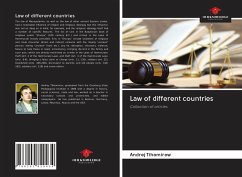The law of Mesopotamia, as well as the law of other ancient Eastern states, had a noticeable influence of religion and religious ideology. But this influence was not as deep as in India, for example, and the religious ideology itself had a number of specific features. The list of sins in the Babylonian book of religious spells "Shurpu" (12th century B.C.) and crimes in the Laws of Hammurabi mostly coincided. Sins in "Shurpu" include violations of religious and ritual character (direct and indirect contacts with the ritually "unclean" person, eating "unclean" food, etc.), any lie, deception, chicanery, violence, failure to help those in need, inconstancy, bringing discord in the family and such acts, which are directly enshrined as crimes in the Laws of Hammurabi: theft (Art. 2 of the Hammurabi Law), and theft (Art. 3 of the Hammurabi Law). (arts. 6-8), bringing a false claim or charge (arts. 11, 126), robbery (art. 22), bloodshed (arts. 206-208), disrespect to parents and old people (arts. 169, 195), adultery (art. 129) and some others.
Hinweis: Dieser Artikel kann nur an eine deutsche Lieferadresse ausgeliefert werden.
Hinweis: Dieser Artikel kann nur an eine deutsche Lieferadresse ausgeliefert werden.








